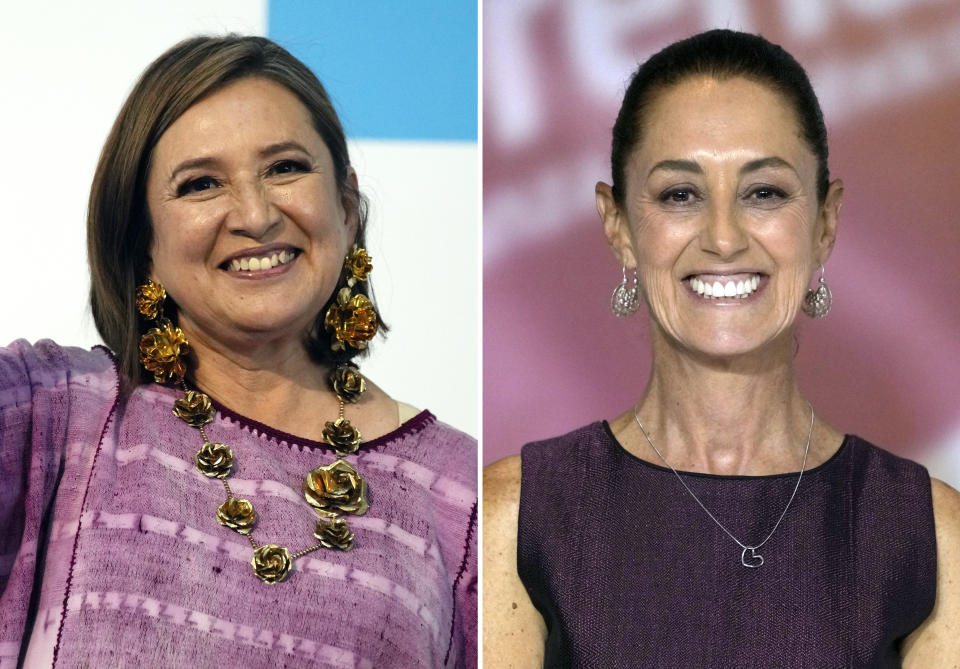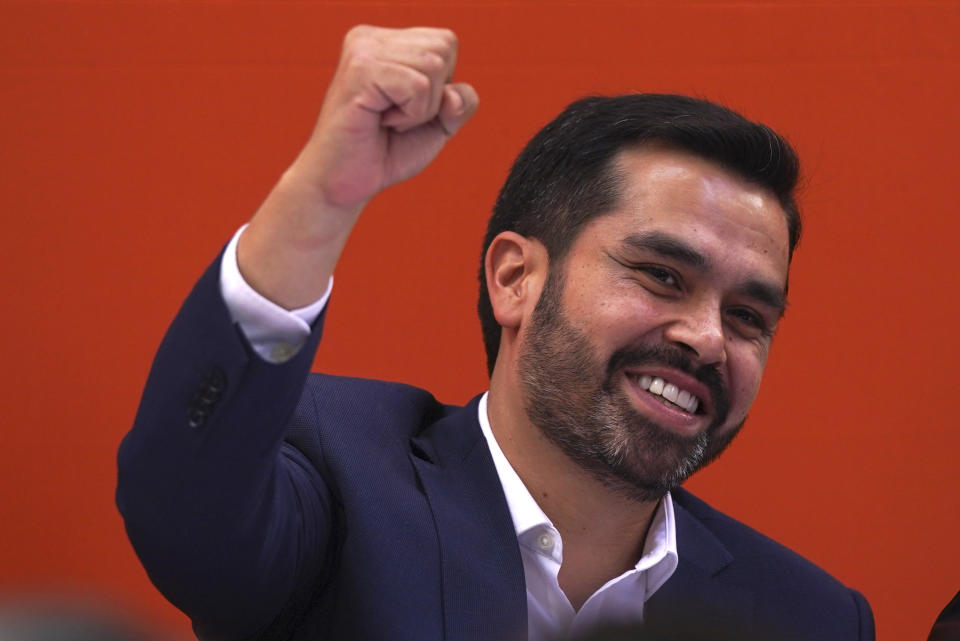Mexico's presidential candidates discuss social spending, climate change in 2nd debate
MEXICO CITY (AP) — Mexico’s leading presidential candidate repeatedly touted the social programs of outgoing President Andrés Manuel López Obrador and walked a fine line between supporting the national oil company and promising a clean energy transition in the second debate Sunday night ahead of the June 2 election.
Former Mexico City Mayor Claudia Sheinbaum of the president’s Morena party continues to hold a healthy lead over Xóchitl Gálvez of a coalition of opposition of parties and Jorge Álvarez Máynez of the small Citizen Movement party.
López Obrador significantly raised Mexico’s minimum wage and increased spending on social programs, most of which are popular direct cash transfer programs. Sheinbaum has benefitted from her mentor’s popularity throughout the campaign and promised to continue his programs.
She called the model of government that he started and she has committed to continuing “humanist, an honest model, protector of our patrimony, with better salaries, with better pensions, without raising taxes.”
Even Gálvez, Sheinbaum’s most serious competitor, stressed that she, too, would maintain the popular, but costly programs if elected. The former senator and tech entrepreneur reminded voters that she knew poverty growing up and was able advance in part because of a scholarship.
“I am a woman who comes from below, who knows poverty and knows how poverty hurts and the time that it steals from you,” Gálvez said.
Álvarez Máynez, a former congressman, promoted his own initiatives to reduce Mexicans’ work week from six to five days, provide paternity leave and increase vacation. He said that despite the social spending of the current administration, young children receive a fraction of what they should because “they don’t vote.”
On the environment and climate change, Sheinbaum, a climate scientist, pointed to her efforts as mayor, such as putting solar panels on the rooftops of Mexico City’s sprawling wholesale market and adding more electric buses and bike lanes.
As president, she said, she would work to reduce greenhouse gas emissions and help Mexico adapt to climate change. But she also defended López Obrador’s construction of a huge new oil refinery that she said would help Mexico reduce its gasoline imports. She warned that Gálvez would try to privatize the deeply indebted state oil company, known as Pemex.
Gálvez said the private sector would be critical in Mexico’s clean energy transition. She added that Mexico was losing foreign investment opportunities because foreign companies require access to clean electricity produced with renewables. She promised to make Pemex an efficient company, something successive administrations from various parties have failed to do.
Álvarez Máynez said that Mexico remains overly dependent on fossil fuels and that the country’s future is in wind and solar power. He promised to put solar panels on all schools and health centers.
Gálvez once again was the aggressor in the debate, trying repeatedly to paint Sheinbaum as untrustworthy. This time she took to holding up a variety of placards while Sheinbaum spoke calling her a liar. Sheinbaum, in turn, took to calling Gálvez “the corrupt one.”
All three candidates said major changes are needed to address Mexico’s fresh water supply, hit hard in much of the country by a prolonged drought. Their plans combined the need for reusing water, the majority of which goes to irrigation, and improving water system infrastructure.



